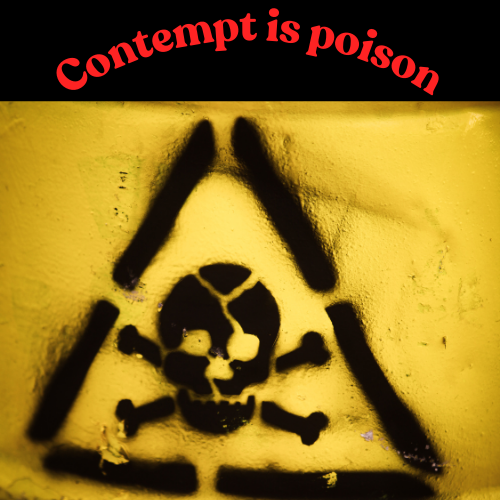
Do I Have Anxiety? 10 Signs You Could Benefit from Counseling
Do I Have Anxiety?
10 Signs You Could Benefit from Counseling
Do I Have Anxiety?
10 Signs You Could Benefit from Counseling
If you’ve been wondering, “Is this anxiety?” you’re not alone. Many people find it hard to tell what’s normal stress and what might need extra attention. Anxiety can sneak into your daily life in ways you might not even notice at first—but recognizing the signs can be the first step toward feeling better. Here’s a simple guide to help you explore whether anxiety counseling might help you regain your balance.
1. You’re Constantly Worried
Do you feel like your brain’s stuck on a treadmill of “what ifs”? Worrying about everything from small errands to major life events can become overwhelming. If you find it hard to turn off these thoughts, anxiety counseling might offer tools to bring you peace of mind.
2. You Can’t Seem to Relax
Do you often feel restless, like you’re on edge, or unable to sit still? It’s not just physical tension; it’s mental too. Those racing thoughts can make it hard to enjoy even quiet moments. A therapist can guide you toward strategies to calm both your body and your mind.
3. You’re Always Tired
Feeling drained no matter how much sleep you get? Anxiety can rob you of energy, leaving you exhausted and unmotivated. Speaking with a counselor may help you uncover and address the root causes of that weariness.
4. Everything Gets on Your Nerves
Find yourself snapping at loved ones or feeling irritated over things that wouldn’t normally bother you? Anxiety can shorten your emotional fuse. Counseling provides a safe space to explore what’s triggering those reactions and how to manage them in healthier ways.
5. You’re Feeling Stiff and Sore
Do you struggle with muscle tension, tightness, or physical discomfort? Anxiety doesn’t only live in your mind; it often shows up in your body too. A therapist can help you learn relaxation techniques to ease the tension and feel more at ease.
6. You Can’t Sleep Through the Night
Is your head spinning when it’s time to sleep? Whether you struggle to fall asleep, stay asleep, or wake up feeling unrefreshed, anxiety might be to blame. Therapists can teach you ways to quiet your mind and build a bedtime routine that actually works.
7. You’re Struggling to Focus
Ever start a task and forget what you were doing, or feel like everything takes twice as long as it should? Anxiety scatters your thoughts, making it hard to concentrate. Counseling can help you reclaim your focus and get back on track.
8. You’ve Experienced Panic Attacks
Do you sometimes feel overwhelmed by sudden waves of fear, complete with a racing heart or shortness of breath? Panic attacks can be scary and exhausting, but they’re also manageable with the right support. A therapist can guide you through methods to reduce and even prevent these episodes.
9. You Avoid Social Situations
Do you shy away from social events because you’re worried about being judged or uncomfortable? Anxiety can put up walls, keeping you from connecting with others. With therapy, you can build the confidence to engage with people on your own terms.
10. You Have Unexplained Aches and Pains
Frequent headaches, stomach issues, or other physical symptoms with no clear cause? Anxiety often mirrors itself in physical ways. Counseling can help you explore the connection between your mind and body and work toward resolving those symptoms.
Real Stories, Real Transformations
Hearing how others have found relief might inspire you to take the first step too:
- Sarah, a young professional, felt overwhelmed by workplace stress. Now, with counseling, she manages her to-do list without feeling crushed by anxiety.
- Mark, a university student, avoided socializing due to fear of judgment. Therapy helped him gain confidence and build meaningful friendships.
- Emily, a new mom, faced postpartum anxiety that made everyday life a challenge. With her counselor’s guidance, she’s rediscovered joy in her parenting role.
These transformations prove how powerful it can be to seek support.
If you ask youself “Do I have anxiety?”, when should I consider counseling?
If any of these signs feel familiar, it may be time to reach out. Don’t wait for things to get worse—instead, think of counseling as a way to take control early on and prevent anxiety from dictating your life. Unsure if it’s really anxiety? Self-assessments and professional evaluations can help clear up any doubts. And if you’re struggling to tell the difference between standard stress and something more, a therapist can help with that too.
We’re Here for You
Taking the first step toward help can feel daunting, but it’s also a courageous act of self-care. Speaking with a counselor can provide the tools and support you need to find relief and move toward calmer, happier days.
Take that step today by scheduling a confidential consultation. Your brighter, more balanced life is just around the corner, and we’re here to help you get there.
Contact us now to start your journey. You deserve to feel better.

















